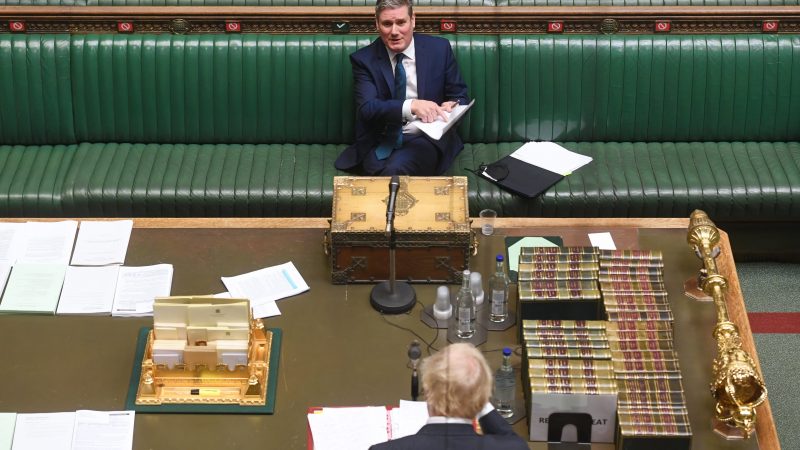
Keir Starmer will be hoping that this week is better than the last. Westminster commentators turned on the Labour leader, calling on him to up his game, show some leg in terms of vision and go beyond forensic criticisms of the government. They asked, almost in unison: what do you stand for? The Sunday Times reported that the Labour leadership will respond to such stories and negative internal briefings by parking its tanks on the Tories’ lawn and unveiling a bold pro-business policy agenda. The party started yesterday with support for extending the business rates holiday during Covid and reduction in VAT. There is more to come. Claire Ainsley, Starmer’s head of policy, has told the shadow cabinet: “Labour must be unashamedly pro-business”.
It won’t be enough to simply say: ‘We’re pro-business. Businesses? Yep, Labour is pro them.’ The leadership will need to develop a distinctive narrative, as economist James Meadway argued via a LabourList piece in September. He offered specific recommendations that are well worth reviewing now. It also seems to me that the Tories have presented Labour with a prime opportunity to connect with the self-employed thanks to its exclusion of tax-paying millions from Covid aid. The entrepreneurs who sacrifice employee benefits for flexibility and the chance to innovate are supposed to be a natural Tory constituency, yet they have been abandoned and won’t forget it.
Shadow cabinet member Ed Miliband launched an impressive defence of Starmer on Marr yesterday and clearly communicated Labour’s priorities both amid the pandemic and coming out of the crisis. He is not the only former Labour leader pitching in to work closely with the current leadership. Labour’s constitutional commission, announced by Starmer just before Christmas, is now properly underway. Gordon Brown, who is heading the review, will meet with England’s metro mayors as part of the first ‘evidence’ session at 3.30pm this afternoon. The regional representatives have released a statement in advance of the gathering, stressing the importance of the project and of English devolution to the country’s future.
It is HeartUnions week: an opportunity to tell the stories of trade unions and their impact on workers’ lives. Labour First Minister Mark Drakeford has kicked off a series of LabourList articles on this theme with a piece on the social partnership model used in Wales. This “uniquely Welsh approach” of developing deep relationships between the government, employers and unions is “not easy”, he says, but has “led to real benefits and real changes to workers and workplaces”. Len McCluskey has a piece on Unite’s successes throughout the pandemic, from the battle for Barnoldswick to British Airways and many others. The general secretary also highlights government failures – and unions being given the “cold shoulder” by Westminster. On that subject: the TUC is asking you all to join its organising call at 6pm tomorrow, pushing Rishi Sunak to provide a fair pay rise to all key workers.
The biggest Labour news of the day is set to be provided by Rachel Reeves. She is delivering a key speech that exposes the extent of Tory Covid “cronyism” but also unveils significant new Labour policies. “This current Tory Party is rife with conflicts of interest. It’s all cheques and no balances,” she will say. There is a definite narrative and a lot of vision here, including concrete solutions to the problems described. It is bold, involving a demand for the emergency procurement process to end, and hugely encouraging. I’m told this speech was originally due in December but Covid, Brexit and all the rest of it led to delay, which has turned out well as the policy side has been thoroughly developed. Read my write-up for the details.
Sign up to LabourList’s morning email for everything Labour, every weekday morning.



More from LabourList
‘The hope that kills you’: Reflections from the final day in Gorton and Denton
MPs, union leaders and organisations react to ‘bruising’ Gorton and Denton result
A gory night for Labour